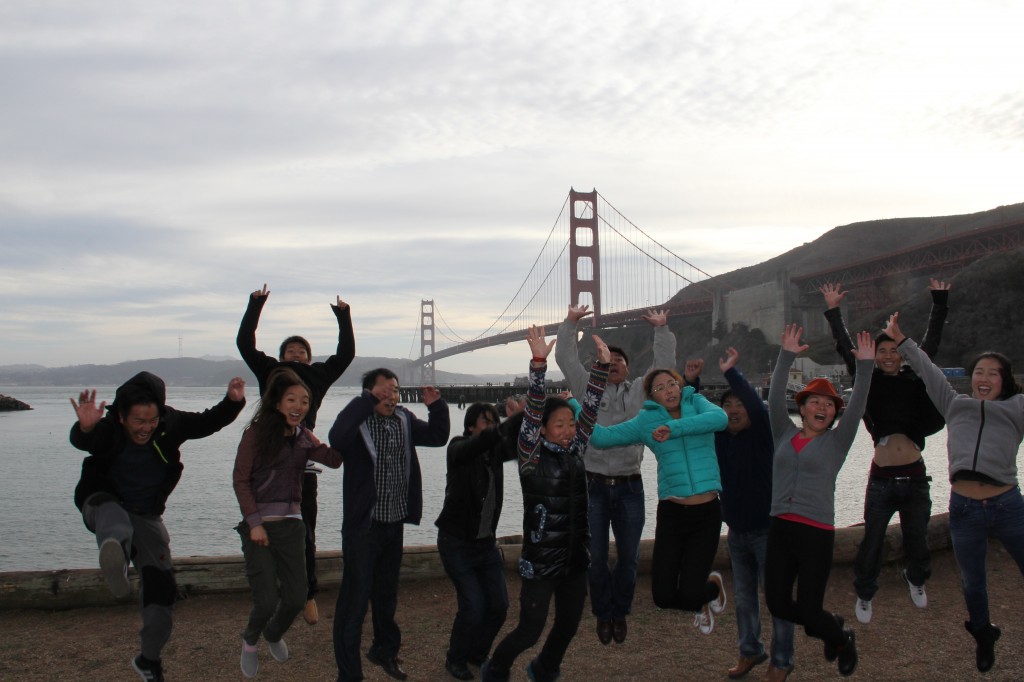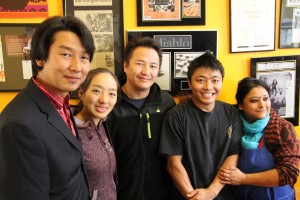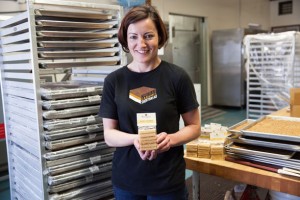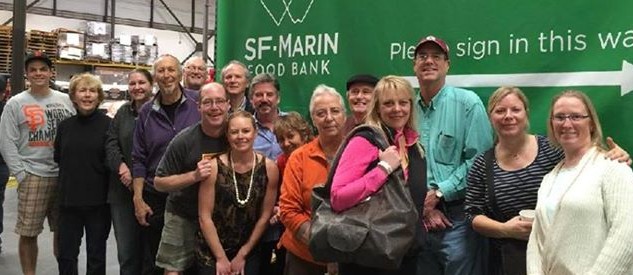The post Business skills and lessons learned appeared first on Paul Terry & Associates.
]]>Do your business skills match your business’ complexity?
I recently shared six tips on this topic and asked other small business owners about their experiences. How did their business skills match the complexity of their business when they first opened? How have they dealt with this tension throughout their business’ evolution? What advice would they want to share with others?
In previous posts Heidi Gibson of The American Grilled Cheese Kitchen and Rachel Saunders of Blue Chair Fruit shared their stories with us. Here are two more business owners tackling complex issues and leveraging their management skills.
Elizabeth Leu
Fiddlesticks
When Elizabeth Leu started Fiddlesticks, a children’s boutique in Hayes Valley, she thought she was prepared. She first worked for someone else and learned as much as she could about the retail business. Elizabeth also took the Renaissance Entrepreneurship Center Business Planning class.
She started her business with a solid foundation of hands-on experience, working for others, and thoughtful planning. Yet she couldn’t prepare herself for what it would actually feel like when she was completely responsible for her own business and all its complexities.
“As a small business owner you have to be the master of all in everything you do, and that’s not easy. You have to wear ALL the hats and ideally, they should all fit. I think management capacity is finding the correct fit with all those hats — and that’s hard! It takes a lot of time and experience to get them all to fit.”
Elizabeth’s advice:
Learn as much as you can about every role in your business.
“You may love only a few of those hats but you have to figure out, master and tolerate them all — at least in the beginning until you can outsource. Once you get strong enough to outsource, you still need to understand how it all works to keep a watchful eye on the whole operation.”
Stay positive and just keep going.
“I have worked very hard to grow my business and I have had some significant setbacks. With every setback I can either choose to learn from it or become bitter and harbor frustrations. I have worked hard to learn from them. All of the setbacks were complex and difficult, especially because it was uncharted territory for me. But I learned and I am still learning. What is it they say, ‘two steps forward, one step back’? As long as you move forward, business complexity feels easier because you keep breaking it down, tackling it piece by piece.”
Claire Keane
Clairesquares
Claire Keane, owner of the artisan, handcrafted sweet treats company Clairesquares, says that her business skills did not match the complexity of her business when she started. She had a steep learning curve. But Claire gained the skills she needed by seeking out specific business knowledge and support and her daily experiences in business brought many lessons learned.
Claire’s key steps for developing core business skills:
Write a business plan.
Claire took the 14-week Business Planning Class at the Renaissance Entrepreneurship Center and wrote a business plan. “To this day, I frequently remember key pointers from each class.”
Join an incubator.
Claire joined La Cocina’s Incubator Kitchen and received the help of that community and all their support services.
Attend lots of workshops.
Claire learned from others to increase her skills. “Whenever there was a workshop relevant to my lack of skills, I made sure to attend it. I was able to take tips from each training and apply it to my business immediately.”
Develop a support team.
Claire knew that she could not do it all alone. “It was very helpful to have a business mentor, new business friends with similar start-up business pains and other friends and family to lean on for advice to get me through the learning curve.”
Keep at it, even through failure.
Ultimately it has been Claire’s tenacity and her perseverance that has made her business a success. “No amount of workshops can prepare you for real world experience. In the end, I learned from trying, failing, and trying again.”
Check out these additional tips on balancing business skills with business complexity. What has worked for you and your business?
The post Business skills and lessons learned appeared first on Paul Terry & Associates.
]]>The post Small Businesses Giving Back appeared first on Paul Terry & Associates.
]]>According to a study by The Fidelity Charitable Fund and Ernst & Young, most business owners are also inspired to give back to their communities — 89% of entrepreneurs donate money, both personally and through their companies, to support charitable causes, while 70% donate their time.
Because small businesses are well connected to their communities and motivated to provide support, they are in a great position to do a lot of good!
Giving back doesn’t have to mean a large financial outlay or donating hours and hours of your time. By connecting how you give (and to whom) with your interests, skills, services or products, you can contribute in a meaningful way and have a large impact.
Your small business can also get a lot in return. The causes and organizations you support will differentiate your business from competitors and can, in turn, strengthen your ties to customers and clients. Giving back to your community can increase your visibility, increase customer or client loyalty and also increase employee morale.
Here are some ways that you can contribute – and some San Francisco Bay Area business owners who are doing just that!
- Mentor other small business owners. There is a strong possibility that your success is due in part to the people that helped you along the way. You, too, can help others be successful. Do you have business expertise that could be valuable to someone either inside or outside your industry? Heidi Gibson, owner of The American Grilled Cheese Kitchen has made mentorship a priority. She offers internships to new food entrepreneurs and volunteers her time to help small business entrepreneurs in Renaissance Entrepreneurship Center’s Business Planning Class with their business financials.
- Organize a volunteer day for your employees to boost morale and foster increased engagement and team-building. You don’t have to have employees to volunteer. My volunteer experience with fellow Potrero Dogpatch Merchants Association members at the San Francisco-Marin Food Bank was a fun bonding activity for our local merchants association.
- Share your knowledge/skills with local organizations. Create a partnership with a local organization that is in alliance with your business and offer your expertise. Avital Food Tours offers unique culinary adventures in the Mission District, the Haight Ashbury, North Beach and Union Square. Owner Avital Ungar volunteers with the Legacy Bars and Restaurants Project run by SF Heritage. She has helped train tour guides for SF Heritage’s Haas-Lilienthal House and organized a pop-up speakeasy to raise money for the Project.
- Create customer incentives. Commit to donating a certain percentage of each sale to an organization, offer discounts to customers who support particular causes, or create a contest to encourage customers to engage. Shivani Ganguly, owner of Bom Dia Market in San Francisco’s Noe Valley neighborhood supports the non-profit Kitchen Table Advisors. In February, she supported them by donating all proceeds from the sale of prepared foods on one day.
- Donate products. Donating products or giving away samples at events can be a great way to reach new customers and support a cause that you believe in. Claire Keene of Clairesquares frequently donates delicious products to support organizations doing good work. She recently donated her treats to a silent auction supporting Techbridge, an organization that inspires girls to discover a passion for technology, science and engineering.
- Donate to organizations in line with your values. Supporting organizations that you believe in shows your customers your business’ values. Keith Goldstein, founder of Everest Waterproofing and Restoration Inc. is committed to donating a minimum of 10% of pre-tax profits to charitable organizations, both local and international, He also sponsors Tibetan refugees for jobs, helping them create new lives for themselves and their families in the United States. Neal Gottlieb, founder of Three Twins Ice Cream launched an initiative called Ice Cream for Acres. Three Twins donates money to land preservation efforts every time they sell a cup or pint of ice cream.
- Join a non-profit board. Ken Stram, owner of 2Bridge Communications is a board member of the Golden Gate Business Association, the city’s LGBT chamber of commerce. “I’m a bit introverted,” he says, “so being a board member gets me out of the office and keeps me engaged with the LGBT small business community. The board experience is sharpening my leadership and collaboration skills, too. The experience is also good for business—it positions me as a leader and puts me in front of an important audience on a regular basis.”
The Volunteer Center helps to match Bay Area non-profits with individuals looking to give back and get involved at a deeper level. Check out their Board Match events.
There are many ways to make an impact. How do YOU give back? Who are the small businesses owners that you know who are making a difference?
The post Small Businesses Giving Back appeared first on Paul Terry & Associates.
]]>The post Mentoring matters appeared first on Paul Terry & Associates.
]]>I recently read the Steve Jobs biography by Walter Isaacson and watched a documentary on his life and last few months. Jobs didn’t ever seem to give up. He pushed himself and others to be different and make a difference. He is an example of someone who had a passion for life, a commitment to make an impact, and a curiosity that never went away.
Jobs felt that “the only way to be truly satisfied is to do what you believe to be great work.” He went on to say that “the only way to do great work, is to love what you do.” Do we all have this passion and enthusiasm? Are we committed to being a success no matter what stands in our way?
Most small business owners are driven… to do something our own way and to be a success. Yes, we want to be financially successful but other types of success matter to us, too: doing something unique, being remembered, teaching others, and leaving a legacy — something that will last.
But what happens when we get stuck? What if we cannot stay connected to the passion? What if success feels elusive and failures do not all become lessons learned? Innately, we know we must keep moving forward and that we will learn from our failures if we can figure out a different path. (Of course, trying to do the same thing the same way over and over is not wisdom, it’s insanity.) Success usually doesn’t just show up. We have to go out there and get it…tackle it, embrace it, own it.
Sometimes we have trouble figuring out the next steps on our own, though. There may be too many options. We may be spinning our wheels around one particular issue. We may hesitate instead of taking action. When we stumble and panic, who can guide us and nudge us forward? Finding someone we trust to mentor us can be critical.
I have a client who is a long-distance open water swimmer. When his group is on a long swim they have escorts in kayaks, rowboats and inflatable motorboats. As he explains, the escorts “look out for our safety, fending off other boats, telling us where we are, where to go, they feed us. They make sure we are okay in mind and body. They are our cheerleaders and companions in our journey to the goal.”

Small business owners also need guides through rough waters. We need escorts, cheerleaders and supporters as we deal with changes and difficulties in our businesses. We might be forced to move locations unexpectedly, have an important employee abandon us, or struggle to make the business financially sustainable. In these times, mentors are essential.
According to the Startup Genome Report, “having helpful mentors” is key to entrepreneurial success. This survey of 650 internet startups found that “the right mentors significantly influence a company’s performance and ability to raise money.” Though we may not have the data to prove it yet, I believe mentoring matters for all small businesses, both new and established. With great mentor support, we can all become the small business owners we want to be.
The post Mentoring matters appeared first on Paul Terry & Associates.
]]>The post Social Enterprise on the Tibetan Plateau appeared first on Paul Terry & Associates.
]]>
Tibetan Social Enterprise Lab Fellows
This past month, twelve entrepreneurs from the Tibetan Plateau in Western China have been immersed in an intensive learning experience in the San Francisco Bay Area. They were selected as the first group of Fellows in a new program called the Tibetan Social Enterprise Lab. This program was created to help Tibetan entrepreneurs build their business skills and make connections with the Bay Area social enterprise community so that they can start or expand their own social enterprises on the Tibetan Plateau.
The Fellows spent their first two weeks on the Stanford campus attending classes, meeting with teachers and students, and developing their business models. Some have well-defined ideas and are in full business start-up mode, while others are at a very early stage, exploring the potential of social enterprise as an alternative to a charity giving model. They are starting product businesses –selling yak dairy products, solar cookers, baked goods, and traditional artisan products, and service businesses –providing digital medial skills training, eco-travel services or vocational training.
Sharon Miller, CEO of Renaissance Entrepreneurship Center connected me with the program, knowing of my long-standing interest in the Himalayan region and Tibetan culture. I got the chance to attend one of their mentor evenings on the Stanford campus, listening to the Fellows “pitch” their business ideas and sharing feedback in one of their “mastermind” sessions.
These young entrepreneurs face challenges unique to the Tibetan Plateau – including extreme weather conditions and limited local markets (one Fellow plans to start a farm-to-table farm business but must figure out how to get his products to the nearest farmers’ market—a seven-hour drive away). Yet as I learned about their ideas and projects, it was clear that they also face some of the same challenges as entrepreneurs everywhere.

Fellows visiting La Cocina
During the last two weeks of the program, the Fellows visited Bay Area small businesses and social enterprises. I gave them a tour and overview of Renaissance Entrepreneurship Center and we talked about the Renaissance approach—a business planning model within a supportive environment, with teams of advisers and peer-to-peer support. We discussed some of the many Renaissance graduate food and product businesses where they might seek direction and mentorship, such as Cheryl Burr of Pinkie’s Bakery, Judi Henderson of Mannequin Madness, Jackie Huang of Woolbuddy, Eloisa Serrano of Bay Thread, Heidi Gibson of The American Grilled Cheese Kitchen and Neil Gottlieb of Three Twins Ice Cream. We specifically talked about the importance of getting hands-on advice and specific direction from other small business owners. The Fellows then visited Renaissance graduates Laurie Kanes of 12 Small Things and Rachel Saunders of Blue Chair Fruit Company, as well as La Cocina and other Bay Area social enterprises.
I believe that mentorship and support from other business owners is key to small business success and is just as important as training in business planning, budgeting, evaluation metrics, and market research. By hearing success stories and lessons learned directly from other business owners, and getting questions answered by people who operate businesses every day, new entrepreneurs can tangibly see what it means to start and run a small business.
As so many of us know, being a small business owner is a job like no other. It can be incredibly rewarding but also potentially isolating. In this virtual age, though, these Tibetan entrepreneurs have the opportunity to create lasting relationships with the people they met during the program and most importantly with each other. With peer support from the Fellowship cohort and support from advisers (ideally other small business owners), these young entrepreneurs will be able to stay focused on their goals, put their plans into action, and ultimately create positive economic and social change in their communities. I look forward to staying in touch with all of them!
The post Social Enterprise on the Tibetan Plateau appeared first on Paul Terry & Associates.
]]>


